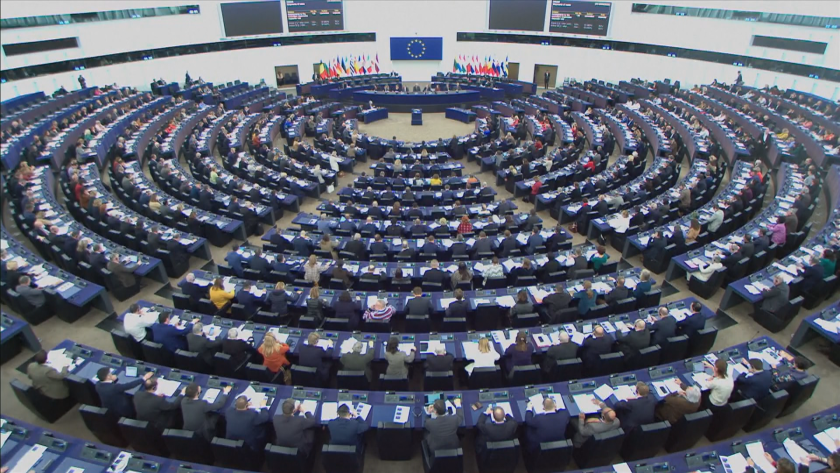
Electoral populism is seen by some of the Bulgarian MEPs in the decision of the National Assembly to ask for renegotiation of parts of the Recovery and Resilience Plan. According to them, , Bulgaria’s efforts should now be focused on the absorption of EU funds. They believe that instead of renegotiation, the country should try, together with Romania and Greece, to request a unified strategy from Brussels for a longer use of lignite on the way to a green economy. The European Parliament is currently holding its first session for the year in Strasbourg.
MEPs Ilhan Kyuchyuk and Petar Vitanov believe that the upcoming elections have influenced the Bulgarian National Assembly's decision to ask for a renegotiation of the Recovery and Resilience Plan.
"It is definitely pre-election because the political parties, in my opinion, are trying to reap the political dividend before the upcoming parliamentary elections. It's very easy - on the one hand there is the money for the plan, yes, against the background of what the Bulgarian energy industry is making 3 billion profit doesn't seem much, but think about it, in just one or two years the new emissions trading rules come into force, so these quotas will become even more expensive. Think about it, if the price of gas is normalised and if the price of electricity in general is normalised, what is coming here is the separation of electricity from gas and from other resources, this also implies a reduction in price, i.e. these profits will disappear and in just a few years it may turn out that it will not be profitable to have a coal industry," said Peter Vitanov, MEP from the BSP/Group of Socialists and Democrats.
Andrey Kovachev of GERB said Bulgaria was late in asking for renegotiation. He said the country should use the funds from the plan as quickly as possible.
"We are extremely late and it is the fault of “We Continue the Change” and their government. The plan was passed a few months ago, now the National Assembly wants renegotiation. Bulgaria is late, it should use these funds as quickly as possible. It is a complex solution - it is not so simple and trivial, we are replacing coal for solar or wind. Each technology has its place. New technologies must be used, we must use these means to introduce new technologies that are more environmentally friendly and with fewer emissions. This does not mean that from today for tomorrow we have to close the power plants, said Andrey Kovachev - MEP from GERB/EPP.
According to the MEPs, Bulgaria can try at regional level, together with Romania and Greece, to slow down the shutdown of lignite production.
"From now on it is possible for Bulgaria to do several things - to concentrate more on the strategic resource that is related to lignite. Here Bulgaria should look for partners, I would say Romania and Greece, so that this can become a slowdown moment, I am not saying that this should be the final part of the discussion, but Europe should adopt a unified strategy to slow down lignite. What will the European economy look like? Undoubtedly, it needs to look in a new way, and the Recovery and Resilience Plan provides such opportunities. I do not see why Bulgaria should be outside the European discussion and outside the European decisions on this issue", said Ilhan Kyuchyuk - MEP from MRF/Renew Europe.
Vitanov noted that not all TPPs in Bulgaria pollute equally, but Bulgaria should make efforts to decarbonise. This is the only way to benefit from EU funds.
 Министър Околийски за Националната детска болница: Звучи като "Белене" в здравеопазването, някакви хора имат интерес да протакат процеса до безкрай
Министър Околийски за Националната детска болница: Звучи като "Белене" в здравеопазването, някакви хора имат интерес да протакат процеса до безкрай
 "Сирени вият ден и нощ, не можем да се приберем": Разказ от първо лице на блокирани в Близкия изток българи
"Сирени вият ден и нощ, не можем да се приберем": Разказ от първо лице на блокирани в Близкия изток българи